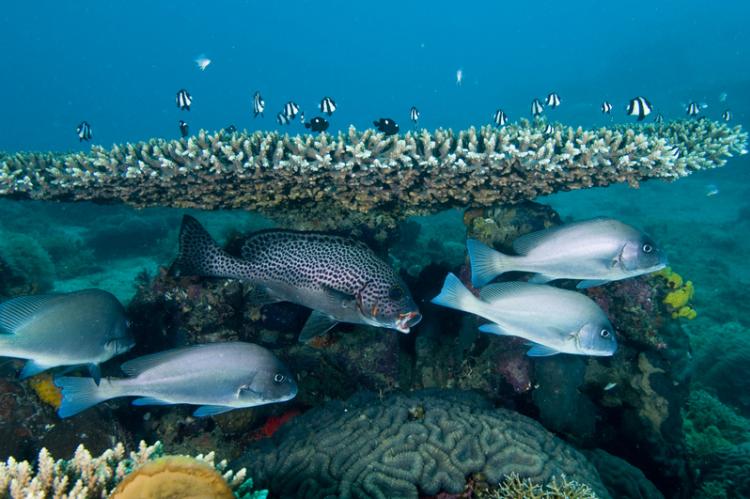Western Indian Ocean has world’s second most diverse coral reefs
The Northern Mozambique Channel could be home to as many as 450 different species of coral. The results of a decade-long study have shown that the northern Mozambique Channel has the highest diversity of corals in the central, northern and western Indian Ocean.
Of the 369 coral species identified so far in the region, at sites in the northern Mozambique Channel, the scientists found 250-300 species, while sites in northern Kenya, the Gulf of Aden and the outer Seychelles islands had 200 or fewer species. The findings also suggest the total diversity of corals in the region may approach 450 species, equivalent to the Great Barrier Reef and Andaman islands, which are on the edges of the Coral Triangle, which would make the northern Mozambique Channel home to the second most diverse coral populations on the planet.
Severely threatened
“The evolutionary lineage of the Indian Ocean fauna predates the Southeast Asia and Coral Triangle fauna, inherited from earlier marine biodiversity hotspots of 20-50 million years ago,” said David Obura, lead researcher for the study. “The region’s reefs have a unique heritage, and contain many unique and old lineages of corals found nowhere else on Earth.”
These reefs are severely threatened, however. The Indian Ocean in general, and the Mozambique Channel in particular, face many and increasing threats and pressures from population growth, overfishing, urbanization, oil, gas and mineral exploitation, tourism development, as well as climate change.
Seychelles score high
The Ocean Health Index is a new way to express the health of marine areas in terms of the range of benefits they deliver sustainably to people, now and in the future. Compared to the global score of 60, Western Indian Ocean countries’ scores ranged from 47 for the Comoros and Somalia to 73 for the Seychelles, and countries bordering the northern Mozambique Channel scored from 47 to 54 (Comoros, Madagascar, French Indian Ocean Territories, and Mozambique).
“Coral reefs fully deserve the intensive study they received in this report, owing to their key importance to the structure and function of marine ecosystems and, equally significant, to human well-being” said Steve Katona, Managing Director of the Ocean Health Index for Conservation International. “The benefits they provide to national goals captured by the Ocean Health Index, such as Food Production, Natural Products harvests, Coastal Protection against storms, Livelihoods and Economies, Tourism and Recreation, and Biodiversity are enormously important.
The study, published in PLOS ONE, was undertaken by the Coastal Oceans Research and Development in the Indian Ocean (CORDIO) to determine the biodiversity and biogeographic patterns of coral reef species in the western Indian Ocean, which has been under-sampled to date. It also sought to identify how the oceanography of the region, dominated by the monsoon and equatorial currents of the Indian Ocean and recently described dynamic eddies of the Mozambique Channel, creates and sustains this core region of high diversity.


